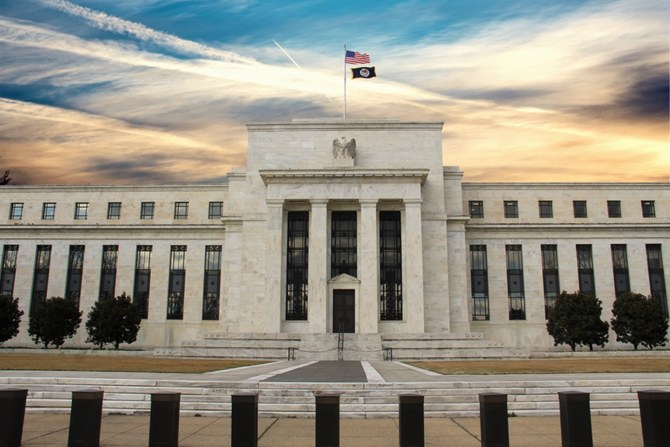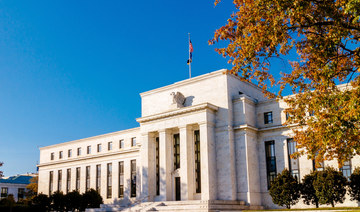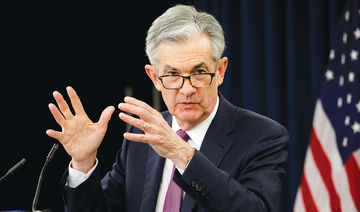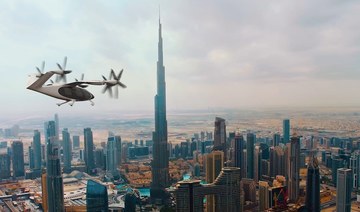RIYADH: The US Federal Reserve’s recent announcements to hike interest rates in March may have sent markets in tatters, but that won’t necessarily translate into an immediate, medium-term market correction if past instances are anything to go by.
Market experts who spoke to Arab News say there is evidence that stock market prices can rise in the first year of hikes.
“For example, overnight interest rates started rising in late 2015 before peaking in early 2020 just before the pandemic started. In that period equity markets strengthened despite the rate increases,” says Ibrahim Bitar, head of investment and treasury at Emirates Investment Bank.
Similarly, he adds, in the 2002 cycle, interest rates started rising in mid-2004. “Yet the stock market kept rising till late 2007.”
However, Bitar points out that the pace of rate hikes has to be slow and shared with the market in advance.
Historically, when interest rates increase, experts say it’s actually good for stocks overall, as long as hikes are implemented slowly and do not stop economic growth.
Goldman Sachs chief US equity strategist David Kostin recently pointed out that the S&P 500 has been “resilient” around the start of Fed hiking cycles in the past. He underlined that despite intimal drops in the first three months, the S&P 500 returned 5 percent in the six months following the first rate rise of a cycle.
Another Dubai-based analyst points out that despite the high inflation numbers and the clear signals from the Fed, “bond yields have remained well in check.”
“Even though a consensus prevails that bonds yields could gradually rise, we believe a bond sell-off driven by the pandemic-induced inflation is unlikely,” says Patrick McKeegan, vice president and portfolio manager at Franklin Equity Group, in an interview with Arab News.
Market volatility
The expected tightening of monetary policy by the Federal Reserve and other central banks in response to high inflation has nonetheless resulted in high equity market volatility. Fear of a 50-basis point Fed rate hike is one factor that unsettled the market and introduced greater volatility for investors, according to CNBC.
“As of February 9, the interest rates markets are priced more than five 25 bps hikes by the US central bank in 2022,” points out Bitar.
Whereas higher interest rates can lower the value of assets. But the question is at what level of interest rates increases and after what time lag does the economy’s growth decline, and as a result, negatively affecting equity values.
FASTFACT
The expected tightening of monetary policy by the Federal Reserve and other central banks in response to high inflation has nonetheless resulted in high equity market volatility.
“There is evidence [that] economies’ sensitivity to interest rates increases with larger debt amounts. The US Debt to GDP ratio was at 138 percent in late 2021 compared with 107 percent in 2019, and 82 percent in 2009,” warns Bitar.
Given the larger amount of US debt now compared with 2019, when US overnight rates were at 2.5 percent, the interest rate level that will slow the economy in this cycle is expected to be below 2.5 percent, he explains.
As of February 9, 125 bps of hikes were priced in the market by the end of 2022. “The question is would a 1.5 percent overnight rate slow the economy?”, he asks.
The debate around the issue remains open in the capital market scene. McKeegan, for instance, believes the market will be muted this year. “The consensus expectation holds that once the Fed starts raising rates, markets could begin to struggle,” he says.
Surviving in uncertain times
Market experts say there are several precautions that investors should take in this uncertain environment. “Investors should control interest rates risk by reducing the duration of their bond portfolios. In addition, investments should be shifted toward high-quality low-risk entities, given the outlook’s uncertainty,” advises Bitar.
Moreover, he emphasizes investors should steer away from illiquid investments that can experience large drawdowns in periods of volatility.
For McKeegan, a growing chorus expresses the belief that “value stocks could lead the way in 2022”. Value stocks refer to shares of a company that appears to trade at a lower price relative to its dividends, earnings, or sales.
Whereas experts believe, investing in high-quality companies tied to long-term secular growth can still payout, as “these perform well over an entire market cycle.”
“Through a longer-term lens, we see promising growth opportunities for companies in areas like cybersecurity, e-commerce, cloud computing and automation,” underlines McKeegan.
The expert adds that once the pandemic begins to stabilize, engagement in live events, including socializing, traveling and concerts, can recover to pre-pandemic levels— and allow markets to stabilize.
At the regional level, the GCC equity markets may be shielded to some extent from international market uncertainty. The GCC equity markets currently depend on several factors, including the amount of GCC governments’ spending, the price of oil, and the US monetary policy, given most GCC currencies are pegged to the dollar.
“The high level of oil helps the oil-rich GCC governments spending. These positive factors are somewhat reflected in valuations,” concludes Bitar.




















